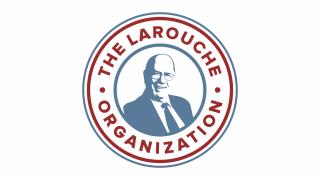May 18, 2025 (EIRNS)—The world desperately needs a new paradigm of security and development.
Consider the Russia-Ukraine-U.S. discussions on ending the conflict in Ukraine:
Those living in NATO-land are told that the talks are useless, since Putin will not agree to a ceasefire. But Putin has been clear all along that he wants a successful resolution of the root causes of the conflict, and a ceasefire is not necessarily a step in that direction. As his chief negotiator in Istanbul, Vladimir Medinsky, has noted, it is not uncommon for negotiations to take place under conditions of fighting.
Those living in NATO-land are told that after calling for negotiations, Putin did not show up in Istanbul. But he never said he would. He called for a resumption of the negotiations that were called off in April 2022 under pressure from Boris Johnson. And he appointed two of the 2022 negotiators to the talks in Istanbul.
Meanwhile, Russia has “acknowledged the constructive role played by the United States” in encouraging Zelenskyy to finally resume negotiations.
Consider negotiations with Iran:
It is useful that President Trump has not given Israeli Prime Minister Netanyahu what he wants—war with Iran. But demands for Iran to completely give up uranium enrichment (which Trump sometimes calls for and sometimes doesn’t) are not the path to peace. As Trita Parsi points out, it took far longer than it should have to reach a nuclear deal with Iran in the form of the JCPOA. In 2003, Iran proposed a comprehensive deal, which would have limited but not ended its enrichment capability. At the time, it had under 200 centrifuges. The Bush administration ignored the proposal. By 2006, the country had over 3,000 centrifuges. The Bush administration formally agreed to engage in talks, but made an impossible demand: that Iran stop all enrichment before the talks began. In 2009, Iran operated 8,000 centrifuges and had stockpiled over a ton of low-enriched uranium. By the time the Joint Comprehensive Plan of Action was implemented, Iran had 19,000 centrifuges and ten tons of low-enriched uranium.
Look at the genocide Israel is conducting in Gaza:
On May 17 The Times of London reports on a leaked Israeli map that proposes splitting Gaza into three sections—north, center, and south—with wide Israeli army corridors separating them, and a large new buffer zone further shrinking the available land in the Strip. Palestinians could cross from one zone to another only with Israeli permission.
Meanwhile, Netanyahu’s announcement that he will resume humanitarian aid to Gaza (in a limited way) has provoked waves of anger from elements in Israel who are even more insane than he is. “Every humanitarian aid that enters the Strip, and definitely all parts of it, will fuel Hamas and give it oxygen while our hostages languish in tunnels,” National Security Minister Itamar Ben-Gvir complained. Another member of his party referred to Netanyahu as “A leader who could have led to a clear victory and been remembered as the one who defeated radical Islam, but who time after time lets this historic opportunity slip away. Letting humanitarian aid in now directly harms the war effort to achieve victory.”
As an anti-genocide commencement address at George Washington University, and the response to it, indicate, the future belongs to peacemakers, not to murderers. A commencement speaker at New York University whose address was on the same theme has had his diploma withheld.
A comprehensive global solution is the only way to solve these crises, and others threatening the world today.
Consider an outlook on solving just one of these issues. The deserts of Southwest Asia cry out for massive transformations of the environment, and of the people.
The LaRouche Oasis Plan, which will be the focus of the third panel of the upcoming Schiller Institute conference, holds that by cooperating to use desalination, pumping, and other techniques fight the desert, rather than each other, the people of Southwest Asia will better be able to recognize the humanity in each other, the common capability of human beings to discover principles of nature and to transform our relationship to the environment around us. There are no human animals.
This plan is not some distant aspiration of what can be achieved years in the future after the peace. It is only through a paradigm of international relations supporting this approach, as will be discussed in the first panel of the conference, that peace is even possible!
Every minute the genocide continues brings more death, more bitterness, more difficulty in achieving shared prosperity. It must end! And the geopolitical paradigm that originates most conflict in the world today must be replaced with a new security and development architecture, and that on a global scale.
Don’t miss out on the May 24-25 conference! Registration for in-person attendance has closed, but it’s not too late to sign up to participate online.






